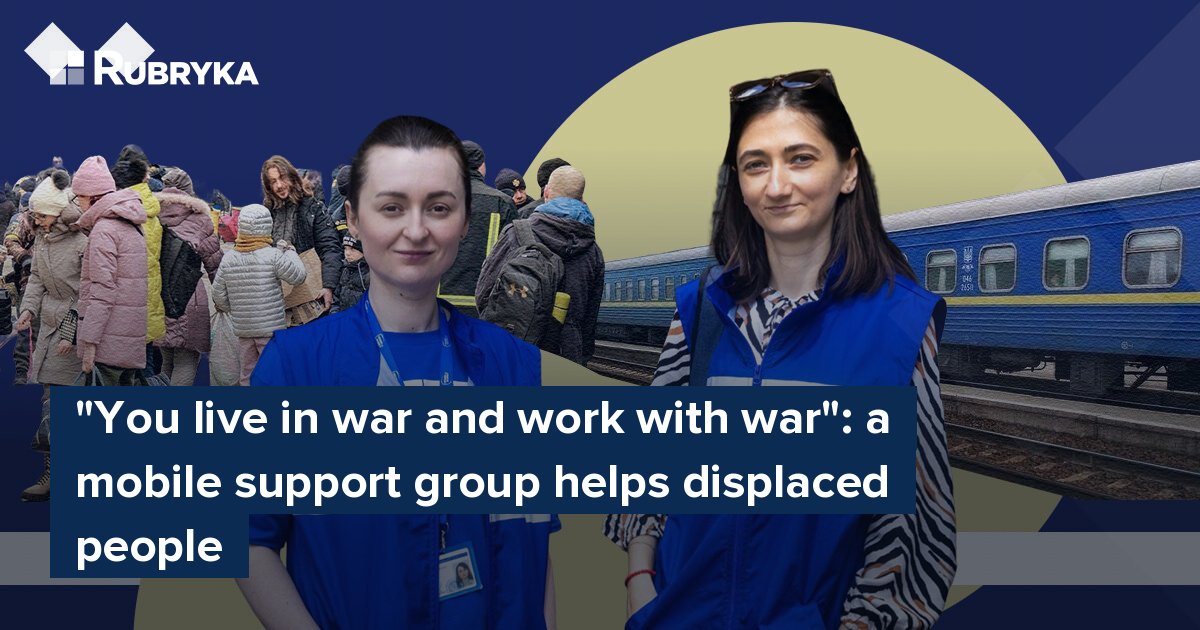
What is the problem?
As of mid-March 2023, at least five million internally displaced persons (IDPs) have been registered in Ukraine, with up to another two million unregistered. Iryna Vereshchuk, Ukraine's deputy prime minister said in April 2023 that the state faces difficulty providing all-around support in social benefits, legal issues, and psychological care in cases of displaced people, of whom 60% are women, 25% are children, and another 25% are pensioners.
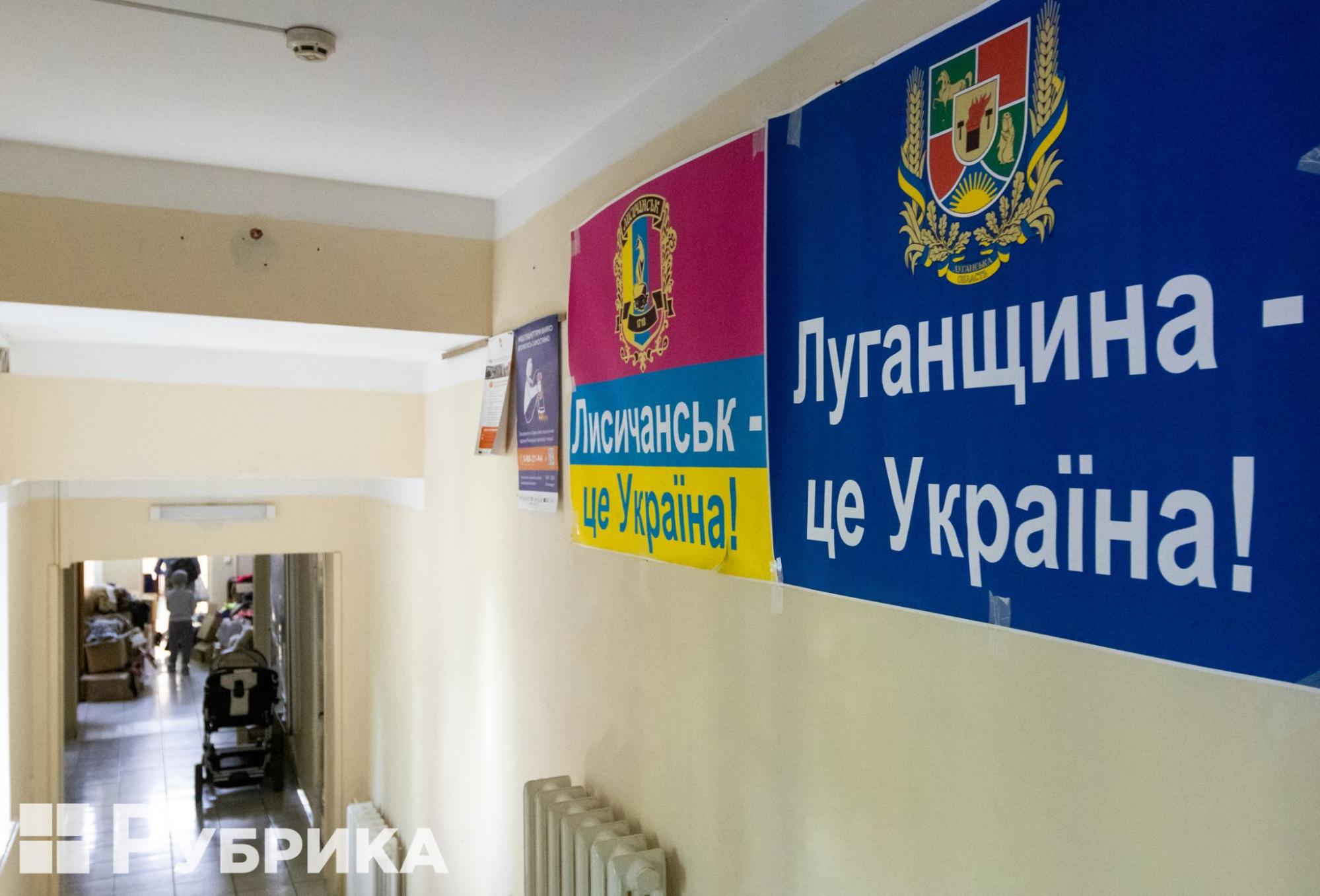
The Lysychansk military administration in cooperation with the European University opened a shelter hub on the outskirts of Kyiv. The walls of the hub are decorated with posters saying "Luhansk is Ukraine"
What is the solution?
The Right to Protection charitable foundation help people affected by the war by sending teams consisting of a psychologist, a social worker, and a lawyer to hubs for displaced people to provide free consultations on the spot. The program is implemented with the financial support of the USAID Bureau of Humanitarian Assistance (BHA) and operates within the framework of the Ukraine Response Consortium project.
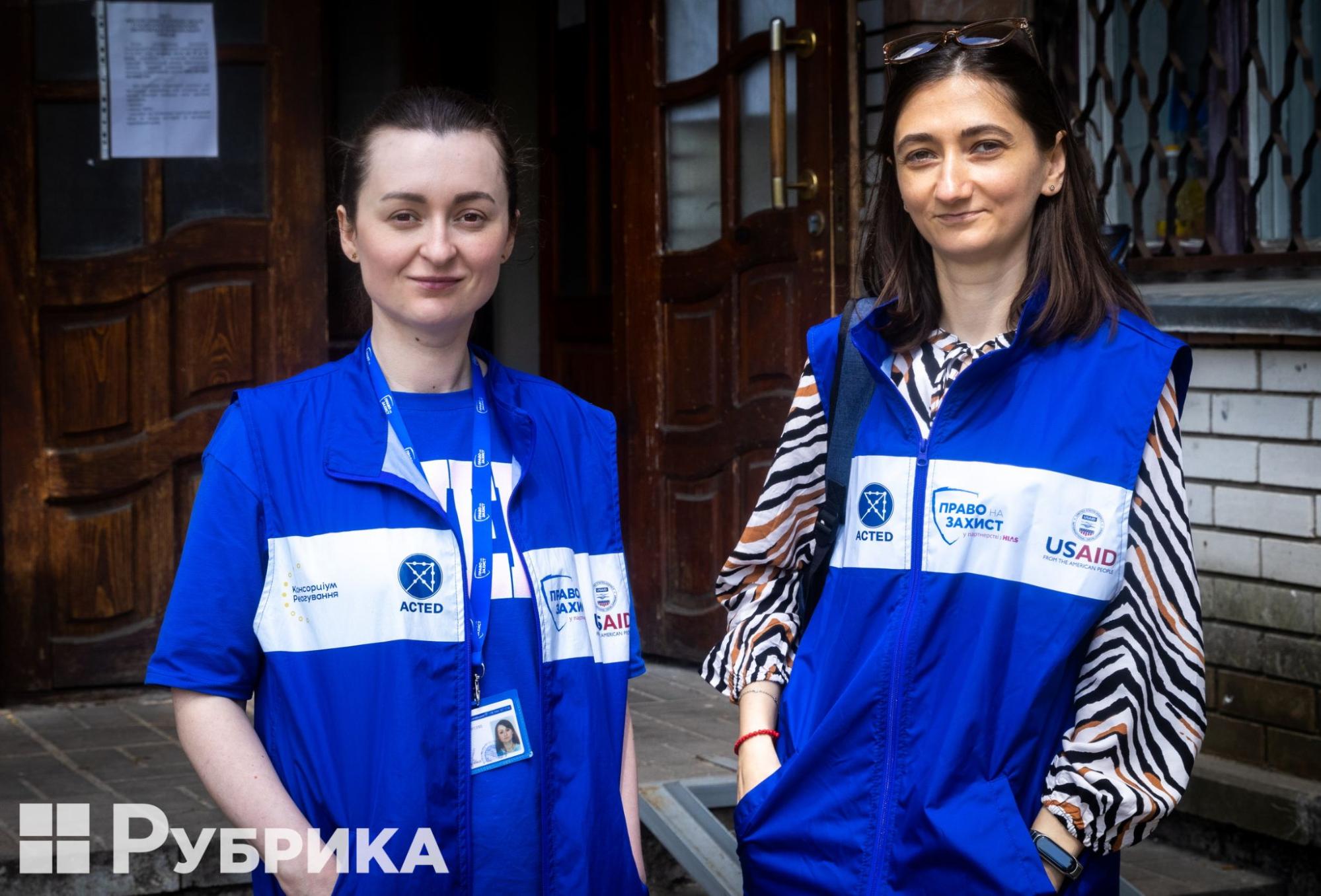
Mobile group consists of a social worker, a psychologist, and a lawyer
How does it work?
Visit of the Kyiv shelter of the Lysychansk community
At 10 a.m., Rubryka's team leaves the Right to Protection office. Driver Oleksandr Matvienko is behind the wheel of the minibus, and social worker Vita Savchuk and lawyer Viktoriya Ilyina are in the passenger seats on the way to the shelter hub of the Lysychansk city military administration, located on the picturesque outskirts of Kyiv.
Matvienko talks about plans to make the bus more accessible by adding a wheelchair ramp — this will make it possible to provide transport services to people with reduced mobility.
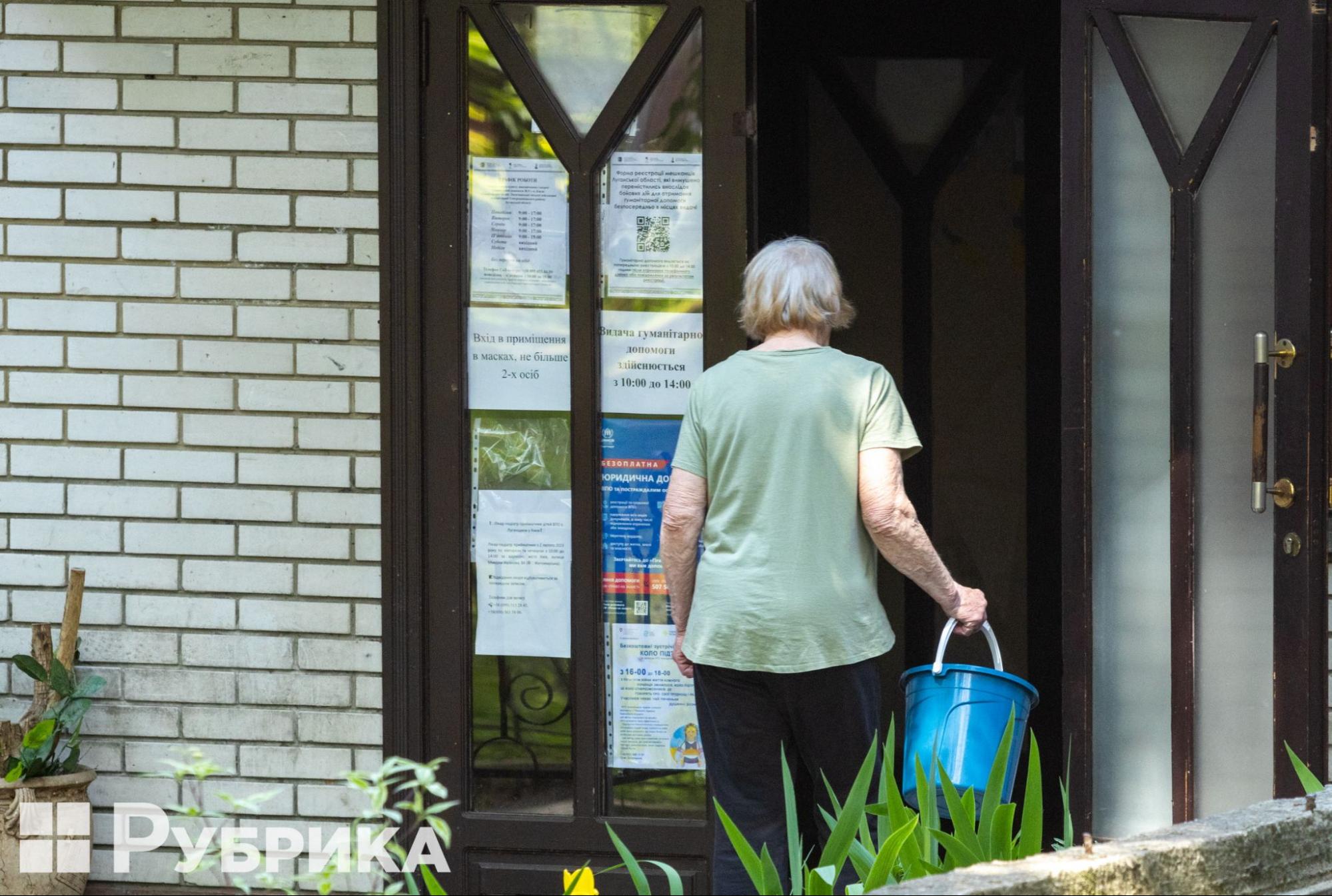
The hub provides help for IDPs from the Luhansk region
The hub was opened in November 2022 on the initiative of the Lysychansk Military Administration in cooperation with European University, which provided three buildings of its dormitories for the accommodation of displaced people. IDPs from the Luhansk region who live in Kyiv also come here to receive humanitarian aid.
A mobile group comes to this shelter every Monday. Many people know about it and prepare their questions in advance. Today, however, the yard is almost empty.
"You see, no one is there now," social worker Savchuk points to the empty courtyard of the dormitory. "When we arrived last time, there was a big line all the way to the yard behind the gate. A dozen people come to us for help on almost every trip, and we help everyone. We don't leave anyone in trouble."
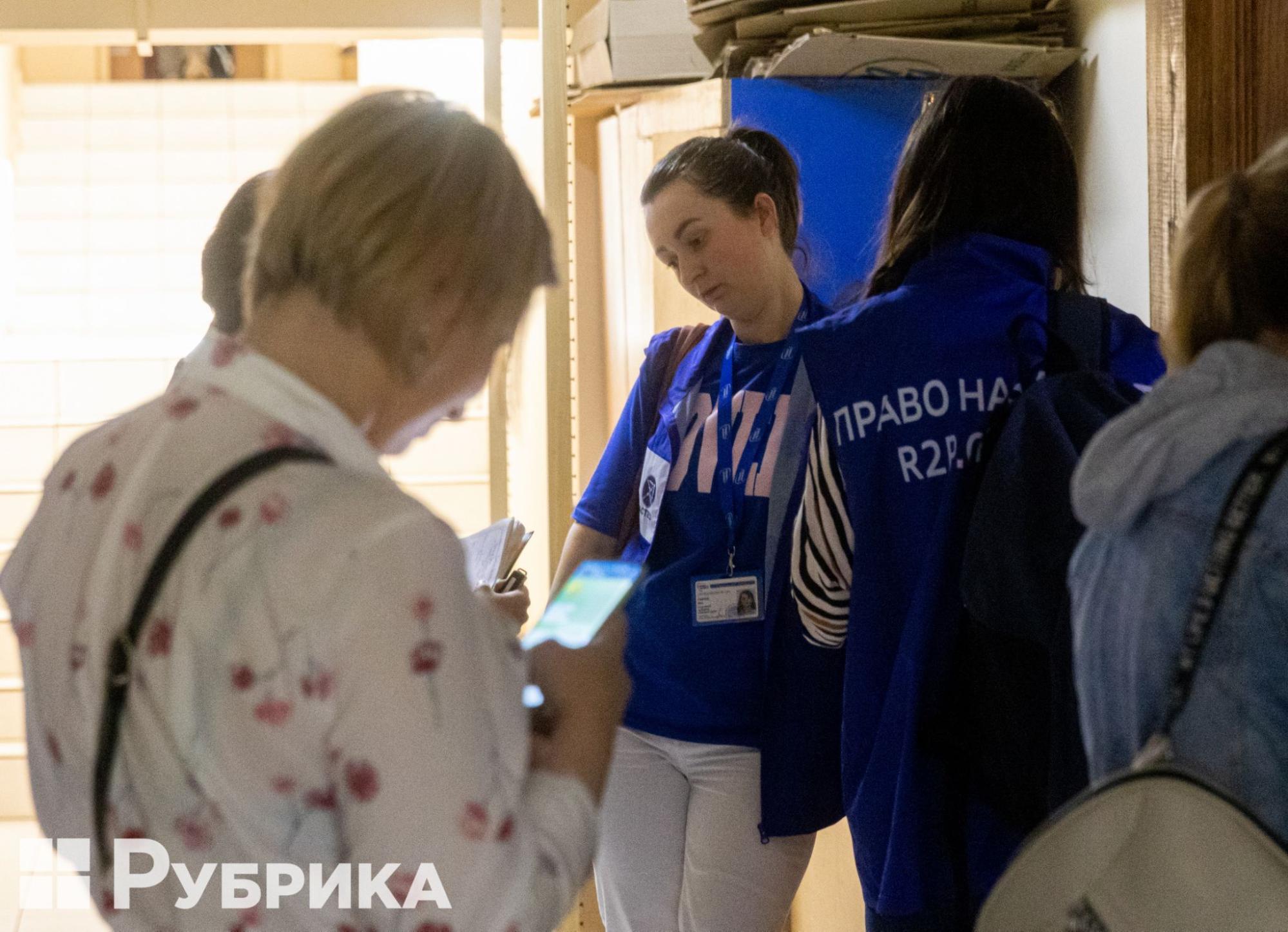
The specialists talk to people in need to collect the necessary data
Inside, however, there is a rather long line of people waiting for humanitarian aid, so Savchuk and Ilyina start approaching people to tell them about their services. In these conversations, it often turns out that people are unaware of the opportunities they have to defend their rights, and would like the help of a lawyer or a social worker.
A lawyer's advice: in addition to registering in Diia as an internally displaced person, file a statement with the law enforcement office
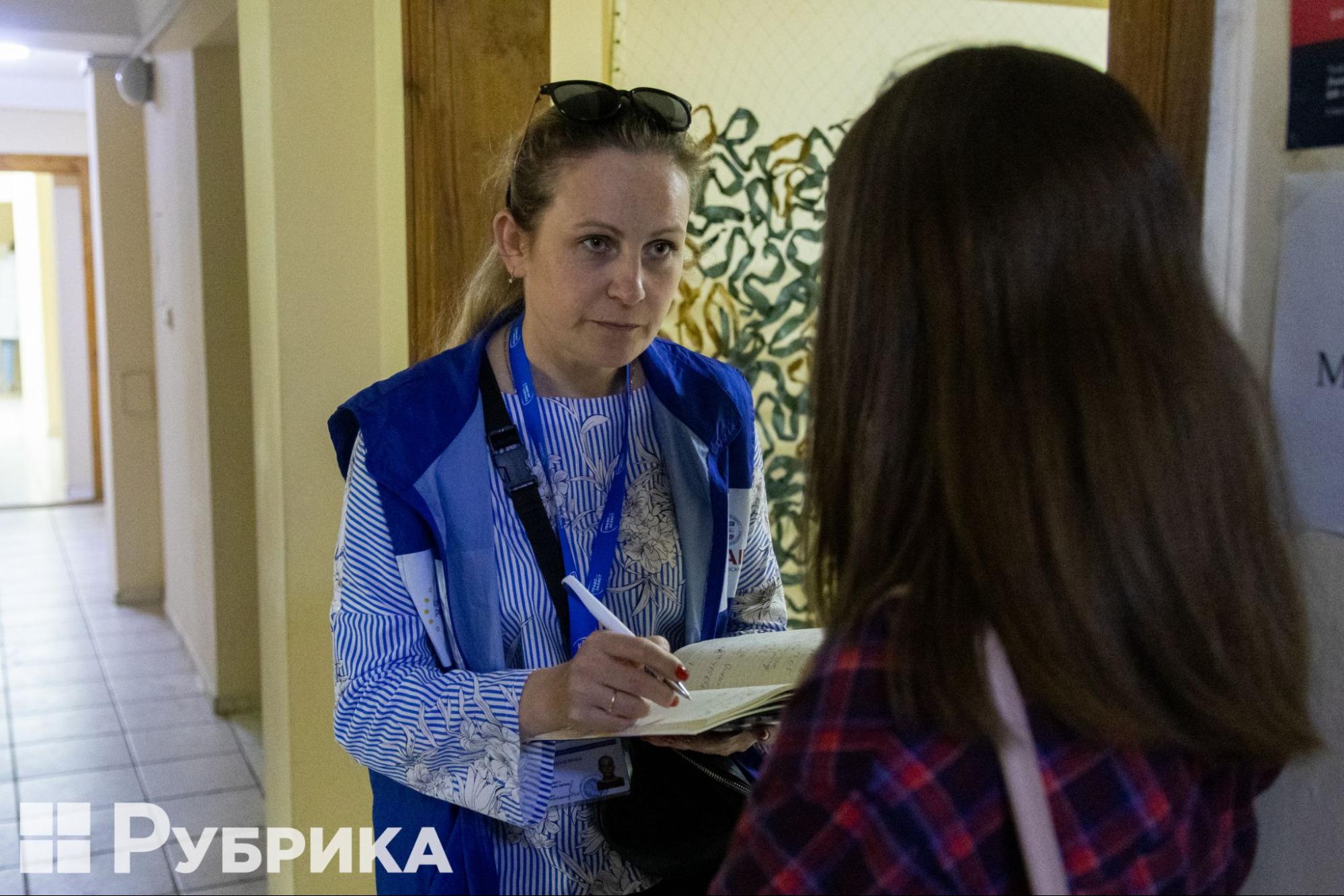
Ilyina is speaking to one of shelter's visitors
Valeria Korablyova tells Ilyina the story of how her family left Sievierodonetsk, in the Luhansk region, on the morning of February 24, 2022 — the day that Russia launched its invasion of Ukraine. They rent a house in Kyiv, the husband works by trade, and Korablyova is on maternity leave. Their apartment in Sievierodonetsk was destroyed.
"My parents stayed there. Sometimes they get in touch and send photos. We live on the second floor, and a shell hit the fifth floor. Our apartment has no windows or balconies now," Korablyova shares.
The family submitted a statement about damage to their flat via Diia, Ukraine's digital governance app. Ilyina also advises writing a report to law enforcement.This statement is necessary to begin prosecution of crimes committed by the Russian Federation against Ukrainian citizens. The lawyer explains to her that with criminal proceedings in motion, they can hope for compensation for moral and property damage,particularly regarding valuable movable property, for example a refrigerator or TV. Korablyova is happy to accept the offer of help, so Ilyina writes down her data so they can draw up a document together.
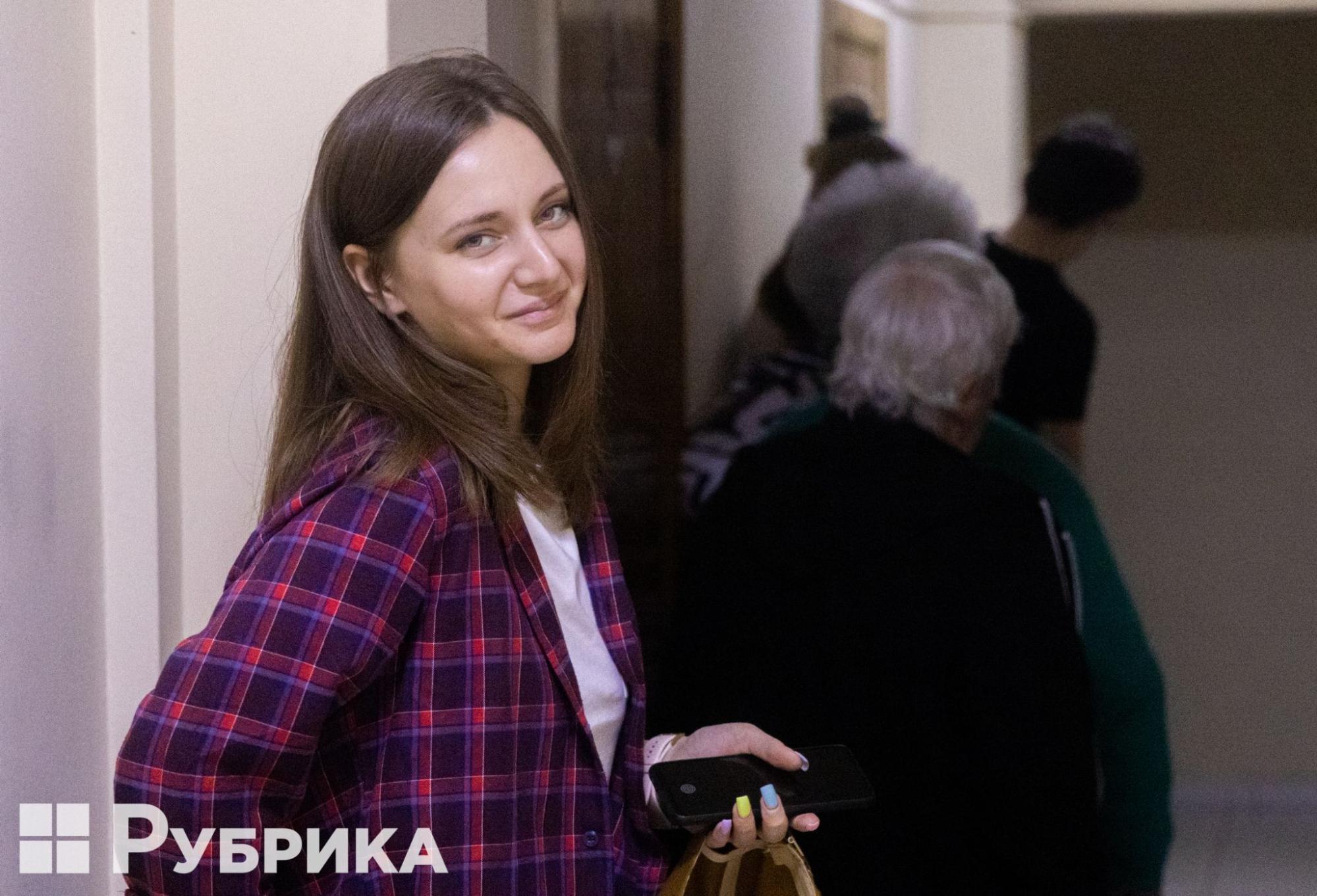
Korablyova had to leave Sievierodonetsk with her family after the start of Russia's full-scale invasion
"We advise you to do everything you can here and now"
Ilyina says that assistance with registering as an internally displaced person is one of the most popular requests for help, as well as help receiving benefits.
IDPs are entitled to payments from the government , but some people have experienced delays, or no payments at all. The issue of documenting the destruction of property in territories that are under occupation or active hostilities is very relevant now, and so is the submission of applications for compensation, the lawyer says.
Unfortunately, many do not know what fate befell their homes because they have no connection with the towns they left, but the issue of destroyed housing is relevant for many. Some know how to submit documents and have done it long ago, and many are doubtful whether it will do any good.
"We explain everything to them — if something can be done, we advise you to do it here and now," says Ilyina.
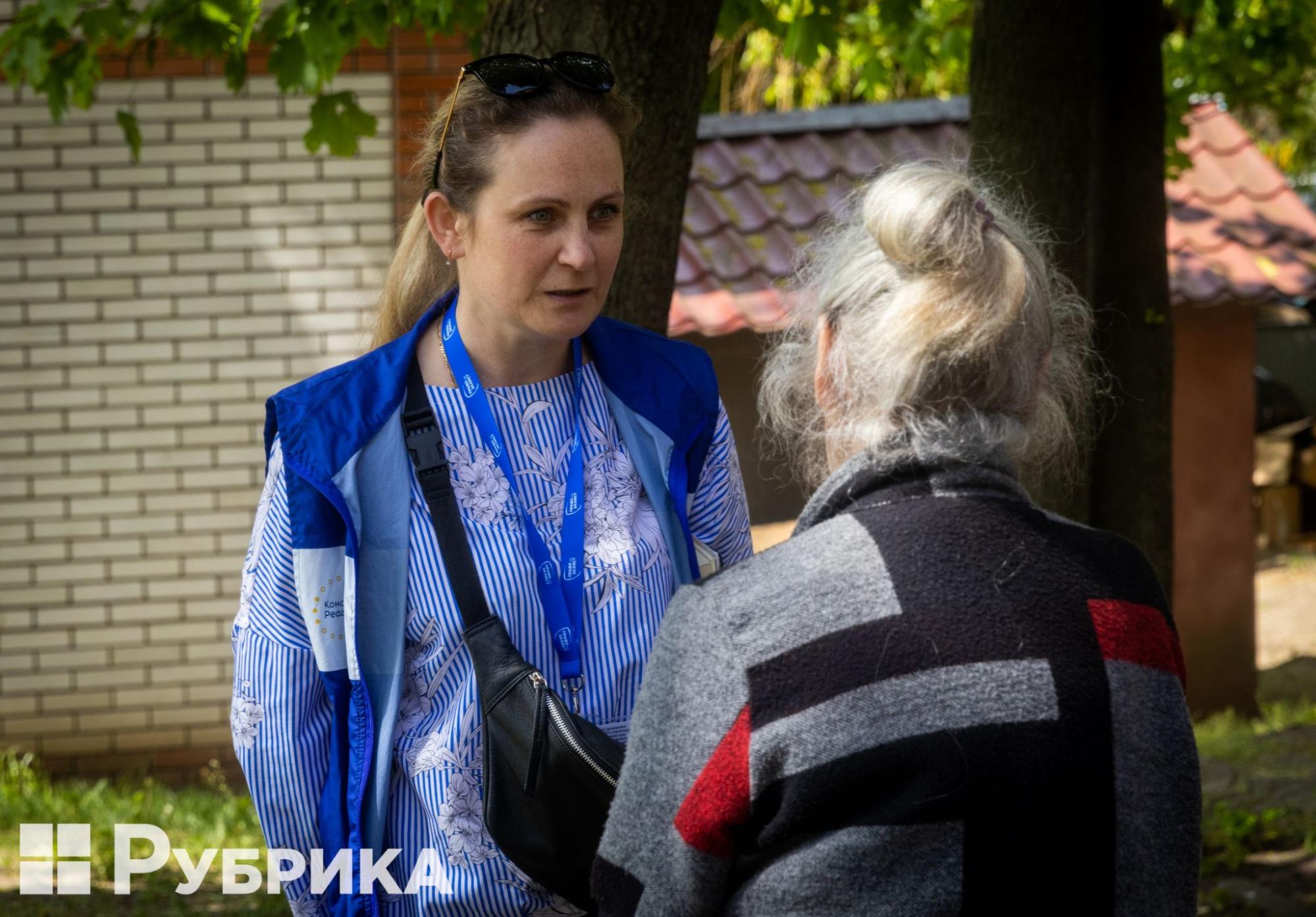
Ilyina helps IDPs to write requests to the social security administration and, if necessary, complaints and advises on applications to the court
According to Ilyina, the most relevant requests today are about establishing the fact of a person's death. People who die in the occupied territories are issued certificates by the Russia-backed authorities of the so-called Luhansk People's Republic and Donetsk People's Republic. If people receive these certificates, or at least a photo copy, the organization helps them apply to a court in Kyiv to obtain a legitimate death certificate according to Ukrainian law.
"These were our first partners"
Tetyana Zhivaga is the coordinator of the shelter in the Kyiv region. She is a teacher by trade and was also displaced from Lysychansk. She started working at the shelter as a volunteer, and now she holds the position of director of the Lysychansk city center of social services.
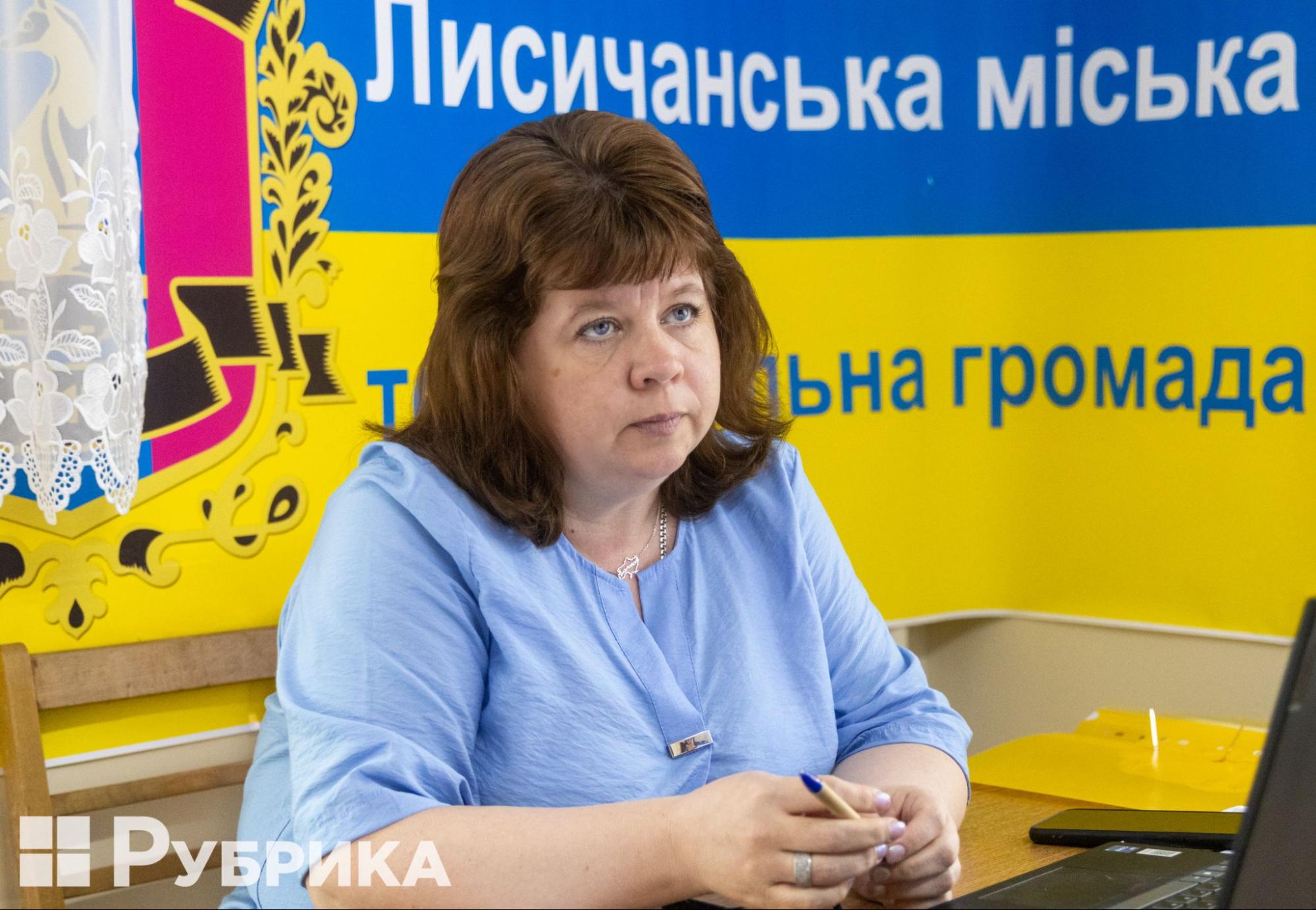
Tetyana Zhivaga is the coordinator of the shelter
Currently, more than 300 displaced persons live in the shelter, mainly from the Luhansk region, but there are also people from Zaporizhzhia, Kherson, and Donetsk regions.
"We have been cooperating with the charity fund Right to Protection almost since the first day we moved here in the autumn of 2022," recalls Zhivaga. "These were our first partners, and their help is immense."
There are people with limited mobility, and the Right to Protection provides them with transport support. Ilyina and Savchuk provide any help they can without being asked. There are families they have supported from the very moment they arrived, and they do not rest until they find solutions to any issues that arise.
Ilyina says the mobile group is always in touch, and they always respond to any message with a question.. Their schedule is tight, but they always manage to solve all the issues. For example, in one of the hub's families, the issue of guardianship has arisen, and the Right to Protection helps to do it correctly.
Zhivaga shares that fortunately people in the hub have managed to unite as a community. Recently, they started weaving camouflage nets in cooperation with volunteers and other IDPs who do not live in the. The men from the dormitory assembled the weaving looms themselves.
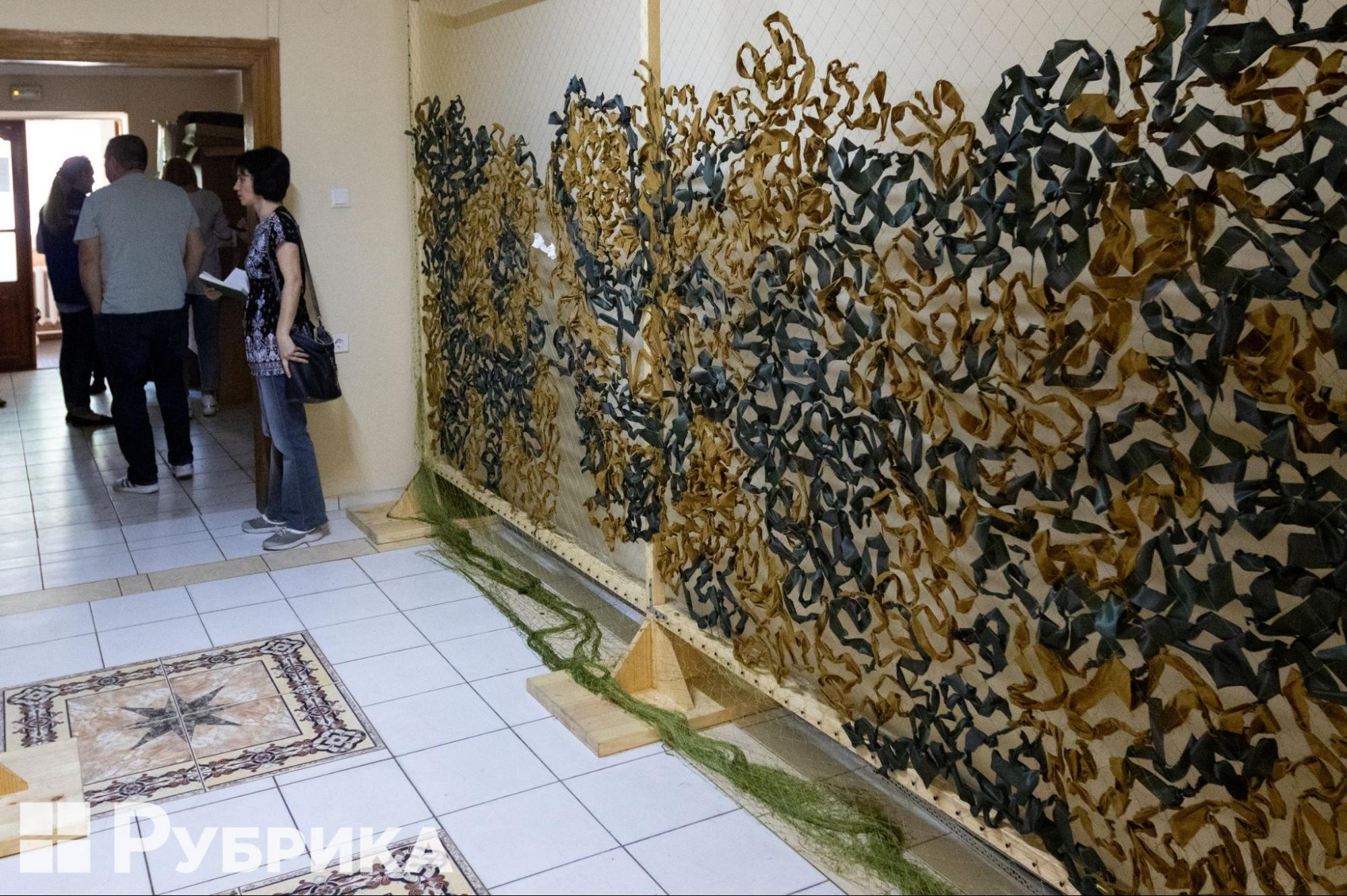
Weaving nets is one of the ways that shelter residents help the army
Women from the shelter bake pies twice a week, which immediately go to the front line. Volunteers bring raw materials for them, but residents also buy some on their own.
"There is a desire, there are people, there are hands," Zhivaga says with a smile.
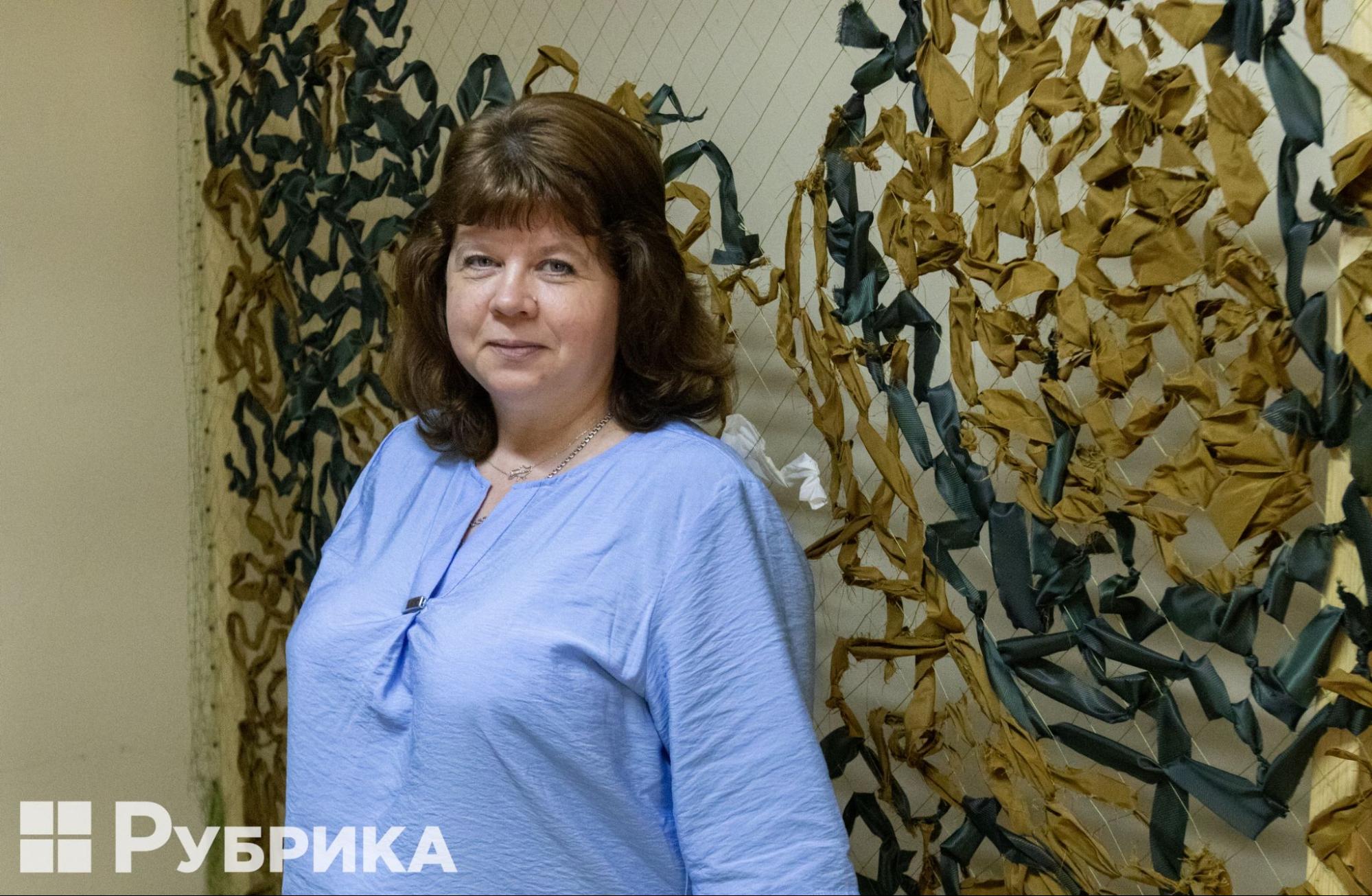
Tetyana Zhivaga started as a center volunteer but now holds the position of director
Words that heal
Psychological help for children played a huge role, especially when the shelter first opened. The psychologist of the mobile group, Serhiy Dozorets, conducted many individual consultations and group classes.
"There are fewer of them now because the children have already adjusted. Adults also receive psychological help," says Zhivaga.
According to the charity fund's team, there is great demand for the services of a psychologist in other communities where forcibly displaced people live, especially in small settlements of the Kyiv region.
It was challenging morally for Yaroslava Polikarpova, an IDP from Kherson. Her family survived the entire Russian occupation in the city, and they left one week after liberation by evacuation train. Polikarpova and her mother, sedentary grandmother, and brother stayed in the Khmelnytsky region for a while, then moved to the shelter in Kyiv.
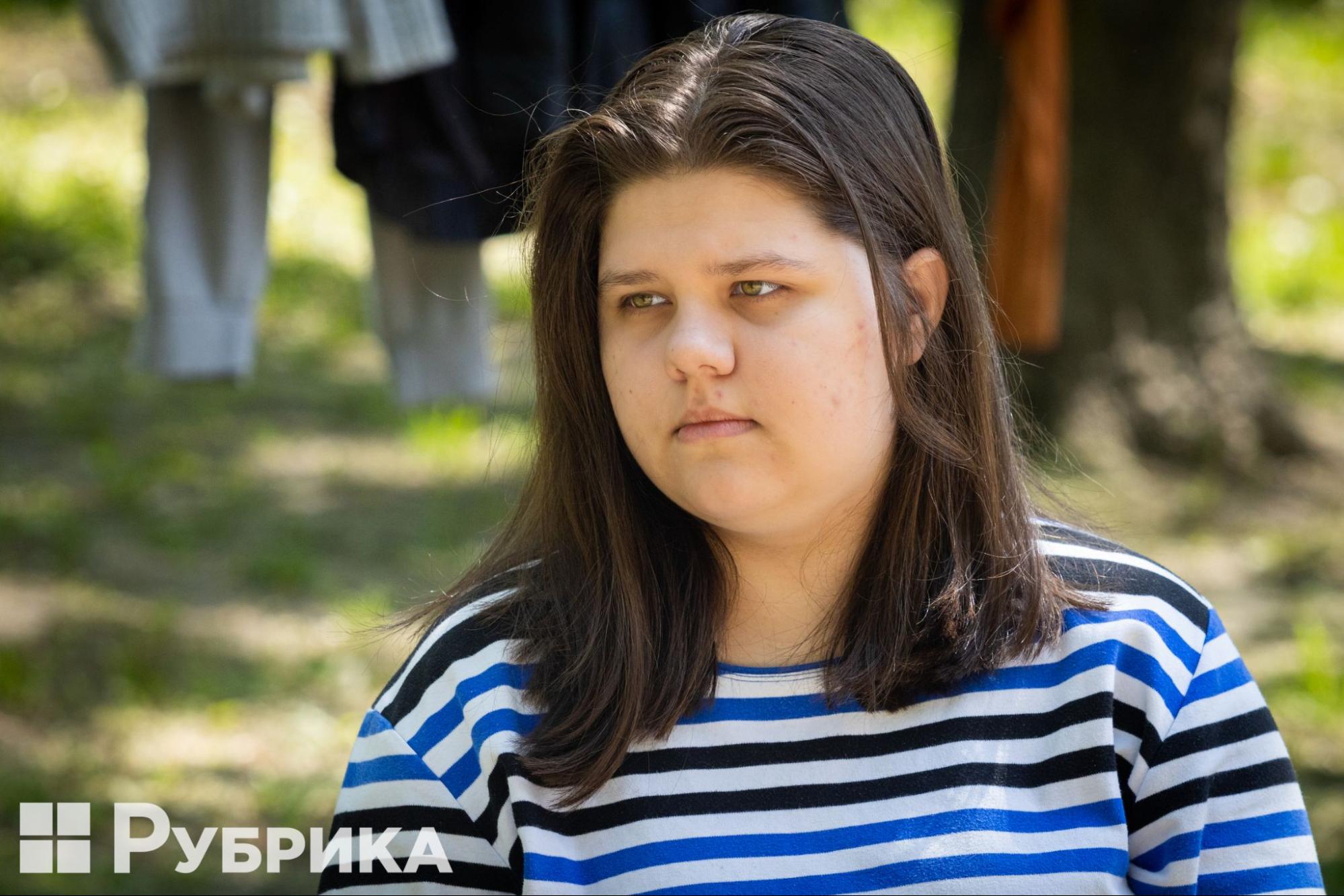
Polikarpova and her family survived Russian occupation of Kherson
She remembers how scary it was when, on the third day of the war, there was an explosion in the neighboring yard, and rockets flew right over the roof of their house.
"Serhiy Dozorets supported me a lot in the first stages and continues to do so. He is very good at finding words and helping psychologically because it was tough," the 18-year-old IDP shares. "I believe that communication with a psychologist, especially after the events of the war, is necessary to not wall off the fears or resentments that existed, so that it doesn't turn into something worse."
She has already finished her first year of technical university and is developing her own start-up WITERoK, designed to advance green reconstruction in Ukraine.
Employees of the mobile group helped Polikarpova's grandmother in getting a bank card — they brought a bank employee directly to the shelter, and the 75-year-old woman was able to sign a contract and receive her payments from the state. Unfortunately, due to illness, she passed away in May this year.
Consultations on all social issues
Within the project's scope is free transport support for elderly people, those with disabilities or children, and low-income people who need to get around to visit administrative services center or the hospital. It can also be a physical escort if a person with a disability has difficulty moving, or is blind and cannot communicate with clerics or fill out applications on their own.
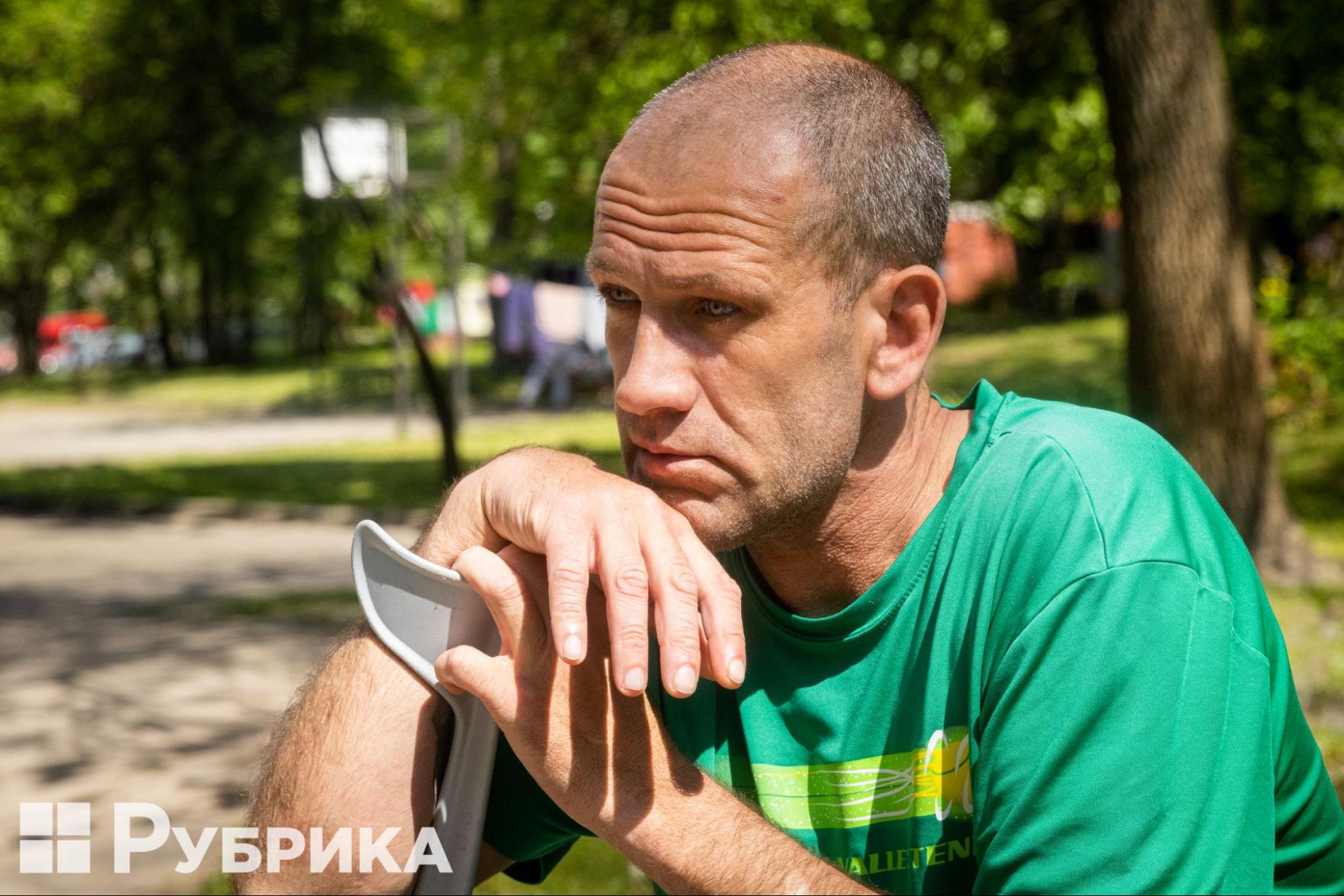
Serhii Makhno lived in Druzhkivka, the Donetsk region and now plans to stay in the Kyiv region
The mobile group provided their services to 44-year-old Serhii Makhno, who has been treating his right leg for several years due to an injury in a road accident and is applying for disability benefits. He has been living in the shelter since February 2023. Before the full-scale war, he lived in Druzhkivka, in the Donetsk region in Ukraine's east. At the beginning of September 2022, when heavy shelling began, British volunteers helped him to evacuate. They brought Makhno to Pokrovsk and put them on a train to Dnipro. He stayed there for ten days, and then the volunteers took him to Kyiv. Since then, Makhno has lived in a shelter in Obukhiv, in the Kyiv region.
When the Obukhiv institution stopped working, he ended up in the shelter of the Lysychansk center of social services located in the Kyiv region. The team took him to the hospital and helped him receive a physical IDP certificate because he only had it in the Diia app. Now, Makhno will be able to receive payments.
Makhno is in Kyiv for the first time and really enjoys it. Makhno says even though he is homesick, he would like to stay in Kyiv, if only he had a job. In a few months, he will have to have a special device removed from his leg, and then he plans to rely only on himself after receiving a job offer in Obukhiv. He is a stonemason by trade, and also worked as a carver.
Savchuk says that the basis of her work with displaced people is consultations on all social issues. Social workers are interested in whether people receive all their payments from the state, or whether they know about the opportunities for assistance from international organizations. They fill in the gaps in the knowledge of displaced people and help to correct misunderstandings about social services.
Cooperation with the Lysychansk community is very close, and there is high demand for both consultations and transport support, Savchuk says. She redirects people to other organizations if the issues are beyond the scope of her work, although it covers a wide range of problem-solving, from helping to find housing or even to rent a wheelchair.
"We never abandon the beneficiary. We always keep in touch, support the person, contact them," Savchuk tells Rubryka.
Workers of the mobile group also provide people with informal support — for example, during this visit, they brought a box of toys and clothes. There is a room in the shelter where volunteers bring things that can be useful to people who fled the war.
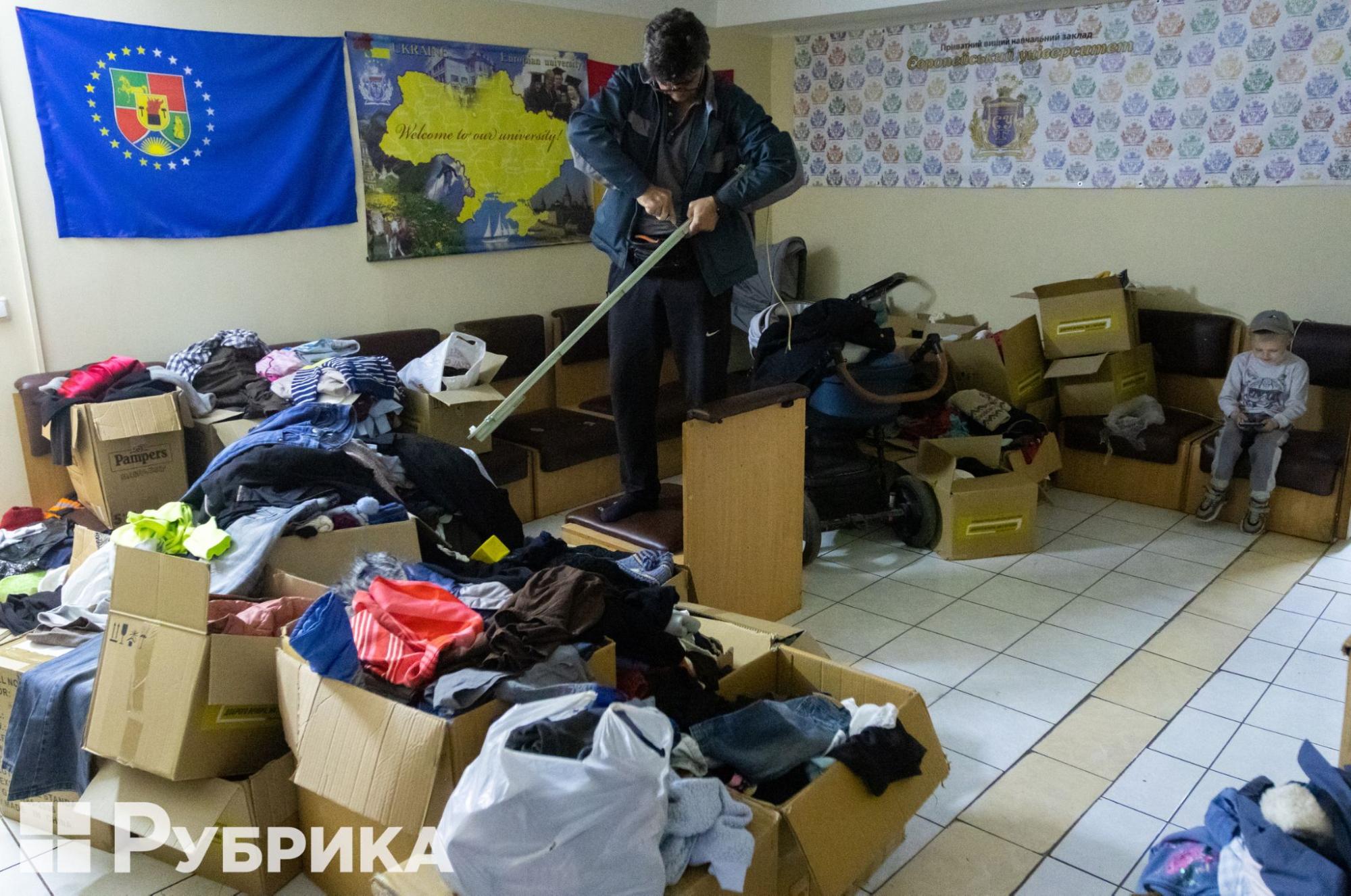
Volunteers bring clothes, toys and other necessities for the shelter's residents
"You live in war and work with war"
Since October 2022, mobile groups of the Right to Protection have been making these trips on a regular basis. The project was supposed to last until May 31, but due to high demand, it was extended until August 31, 2023.
Rubryka learned about the difficulties the mobile group faces in this process.
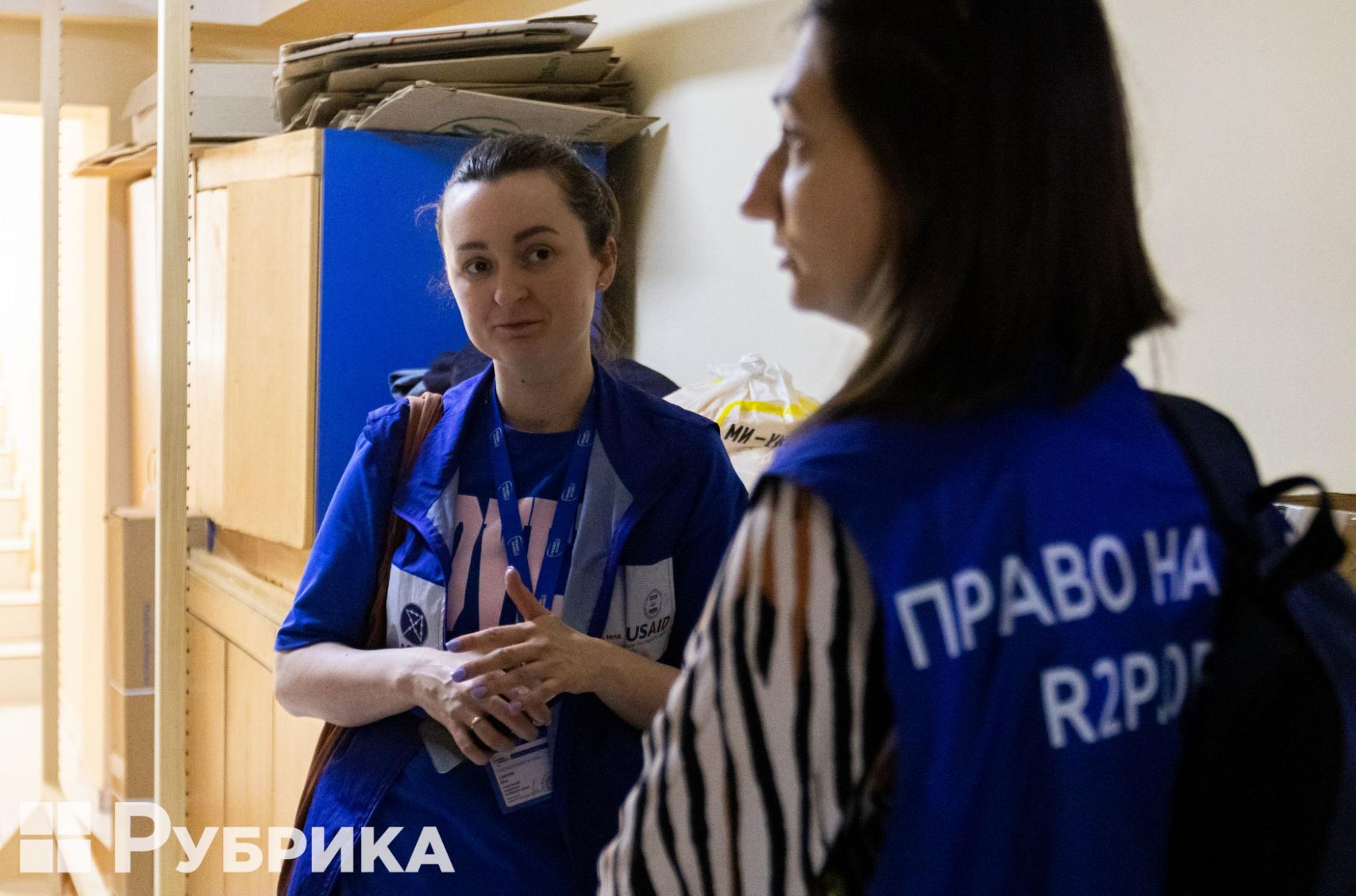
Savchuk and Ilyina share the challenges of working with IDPs
"You live in war and work with war. That's the main challenge in this job," says Savchuk. "It is difficult when you see people who come in slippers when it's freezing outside because they ran away at the last moment. You understand: who else but you? If this person gets to you, your main task is to help them."
According to Savchuk, it is very difficult to see a person lonely: there is emptiness in their eyes and the feeling that no one needs them — not only older adults, but people of all ages.
"We try to help everyone as much as possible," Savchuk says.
If one of the employees feels burned out, the management sends them on vacation. The organization also holds sessions for employees with a psychotherapist every Friday, if necessary.
"We usually adapt and do not need such help," says Savchuk. "Plus, there is always a psychologist in a team. If something bothers us, we talk about all these things, and this is a great support."
Openness, tirelessness, a business-minged approach, the willingness to listen, and professional help — it seems that all employees of the mobile group have such traits. The gratitude of people who temporarily need support confirms this.


